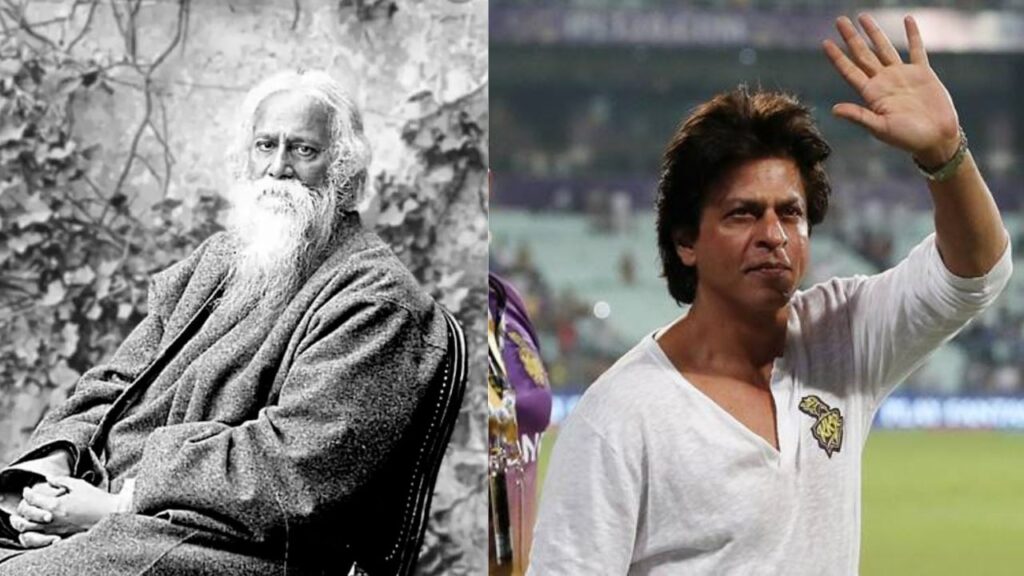
More than 80 years after his death, Rabindranath Tagore remains at the heart of Bengali culture and literary tradition. The very fact that there is a public holiday in his honour is unusual in itself. Such gestures usually commemorate the lives of rulers, conquerors and political figures. You don’t often associate such celebration with the life of someone who was primarily a writer and a force for social and cultural change.
Perhaps, the two closest comparisons are with Scotland and Cuba. It’s hard to envisage a cultural event in Scotland that doesn’t have at least a passing reference to Robert Burns, who wrote Auld Lang Syne. Similarly, Jose Marti, the 19th century poet who wrote, “Two fatherlands have I, Cuba and the night”, is at the centre of any discussion on the arts in the Caribbean nation.
The full extent of the Tagore influence on Bengali life was brought home to many outsiders during the first season of the Indian Premier League (IPL) in 2008. The Kolkata Knight Riders were the competition’s ‘celebrity team’, with Shah Rukh Khan and Juhi Chawla in attendance at most games. You even had the unusual spectacle of the Shah Rukh-12 replica jersey selling far more than the Ganguly-1 shirt.
Rabindra Jayanthi that year fell on May 8, and for the IPL, it meant a repeat of the opening match three weeks earlier, where Brendon McCullum’s blazing 158 not out had blown Royal Challengers Bangalore away. Both teams went into the game in poor form, and there was the intriguing sub-plot of a team led by Sourav Ganguly taking on one marshalled by Rahul Dravid, who had succeeded him as Indian captain in controversial circumstances.
But that night, the atmosphere went far beyond such rivalries, and the razzmatazz that Lalit Modi, the league’s founder, had thought up as accompaniment for the on-field action. It’s doubtful whether anyone who was present at Eden Gardens that night will remember what songs were blaring on the Public Address system, or what moves the cheerleaders tried to pull off. What they will recollect for sure is Shah Rukh reciting Tagore’s poetry, and Ganguly bowling Dravid behind his pads before setting off on an epic celebration.
Also Read: Tagore and Cricket
It was a rain-interrupted game, reduced to 16 overs a side. For a long time, the vast crowd wasn’t even sure that they would get to watch any play. But in the true spirit of the holiday, and the humanist values that Tagore stood for, there was no unrest or unruliness. The thousands waited patiently, and then lapped up the action, which ended with KKR stealing a dramatic five-run victory.
The occasion was so important for a new franchise looking to grow roots in the city that no less a person that Prasun Mukherjee, a former Commissioner of Police who was president of the Cricket Association of Bengal (CAB) at the time, helped to get the ground ready for play after the downpour.
The clock was ticking towards 1am by the time the post-match formalities had been completed. By then, most of the crowd had spilled out into the wide thoroughfares around Eden Gardens, with no prospect of finding transport that would take them to the far-flung corners of a vast city.
Journalists walking back to their accommodation or offices at 1:30 rubbed shoulders with this crowd. Again, there was a noticeable lack of anger or sullenness. People walked shoulder to shoulder while engaged in animated conversations. Fathers carried children on their shoulders, while others tried to wrap up warm in the cool night.
At a time when lumpen crowd behaviour and jingoistic nonsense had started to infiltrate cricket grounds the world over, that huge peaceful throng heading home from Eden Gardens was a sight to behold.
In Stray Birds, a book influenced by Japanese haiku, Tagore had written: “The stars are not afraid to appear like fireflies.” On that Rabindra Jayanthi night, those very stars guided his people home.



